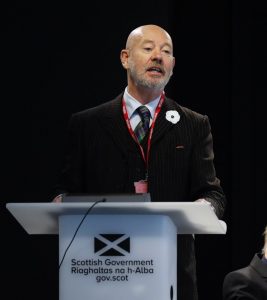Yesterday marked the hundredth anniversary of the first Remembrance Day. As we begin a new century of commemoration, it’s a good time to think seriously about wars and their consequences.
The Great War was not, as was hoped at the time, ‘the war to end all wars’, and the Remembrance Day ceremony has always provoked a range of responses, from reverence to anger. Post war Britain was not “a land fit for heroes”; it was a land of unemployment, poor housing and unrecognised military pension claims. Many ex-servicemen refused to participate in the first Remembrance Day ceremony, among them Harry Patch, “the last fighting Tommy”, who died ten years ago.
As a 19-year-old, Harry served at Passchendaele and he was so traumatised by his experiences that for the next 80 years, he locked himself away in a private vigil for his fallen friends. As he said, ‘The night we caught it, we had taken the German front line and we were coming back through what was the old No Man’s Land. It was crossing there that a rocket burst amongst us. It killed my three mates, it wounded me… September 22nd, half-past ten at night. That’s when I lost them. That’s my Remembrance Day.
Armistice Day, you remember the thousands of others who died. For what? For nothing. It wasn’t worth it. No war is worth it. No war is worth the loss of a couple of lives let alone thousands.’
After the war, Patch returned to his trade as a plumber, married, and had a family, but he never spoke about the war until his 100th birthday, when for the first time he allowed reporters to visit his care home. Harry believed war was “organised murder”, and opposed it in all its forms. His views on events like Remembrance Day were pretty clear too.
‘World War One is history, it isn’t news. Forget it.’
The purpose of Remembrance Day is to remember the horror of war and embrace peace, so we should admit that the rituals we’ve dutifully performed for the last century haven’t been a resounding success. This country has been involved in wars of one kind or another every year since, which is why I think it is time we honoured courage of a different kind. This year, lets honour the people who risked everything to prevent war breaking out in the first place: Civil Servants.
The film ‘Official Secrets’ is only the most recent of a string of movies that illustrate a point first made more than two thousand years ago by the Greek dramatist Aeschylus, that ‘truth is the first casualty of war’.
Catherine Gun was working at GCHQ when she was copied into a request from the American National Security Agency to monitor the private communications of UN delegates to leverage support for the invasion of Iraq. She leaked it, via ‘a friend’, to the Observer, hoping it might be enough to stop the war. It wasn’t. Gun was arrested and charged with breach of the Official Secrets Act. “You work for the British government,” said her Special Branch interrogator. “No,” Gun replied. “I work for the British people. I do not gather intelligence so the government can lie to the British people.”
Those lines really resonated with me. They also resonated with the former US military analyst Daniel Ellsberg, who in 1971 leaked the Pentagon Papers to the New York Times, which showed how the US Government had fabricated ‘the Tonkin Incident’ which led to the start of the Vietnam War. It took 40 years for the truth to come out when the material was declassified; ironically not long after we had learned there were no Weapons of Mass Destruction in Iraq.
Ellsberg, who faced charges in the USA under the Espionage Act, has called Katharine Gun’s action “the most important and courageous leak I have ever seen. No one else – including myself – has ever done what Gun did: tell secret truths at personal risk, before an imminent war, in time, possibly, to avert it.”
There is a long and distinguished line of whistleblowers whose reputations have been smeared and whose lives have been ruined because they have believed that truth matters, and that accountability is key: Daniel Ellsberg, Clive Ponting, Chelsea Manning, Edward Snowden and Caroline Gun are just the best known. As Harry Patch said, ‘No war is worth the loss of a couple of lives let alone thousands.’
If we are to honour Harry’s memory, and the memory of all those who have died in conflict or as a result of it, then let’s honour the courage of those who have risked all to prevent it, and to defend the truth.


0 Comments Leave a comment